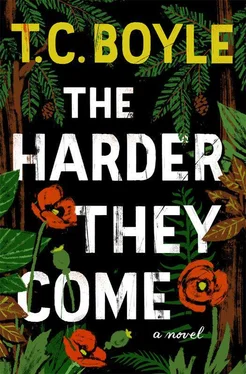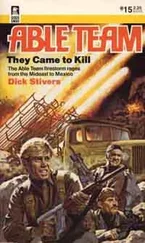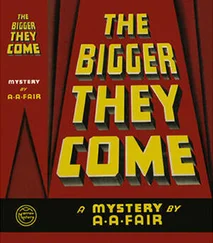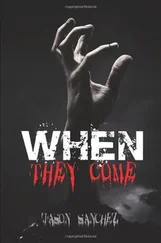“Oh, Sten,” she said, shaking her head side to side. “I know, I know. I’m just worried, that’s all. Where is he, that’s what I want to know—”
“He’s at the funeral home. Or the morgue.”
“Maybe we should call Cody’s parents — maybe he’s with Cody.”
“I’m talking about Carey . Carey Bachman. He’s at the morgue. Can’t you get that through your head?”
It was a pointless conversation and it ended, as if at the bell between rounds in a prizefight, with the ringing of the telephone, which happened to coincide with the feverish buzz of the cell in his pocket. He was the ex-principal, the ex-Marine. He was the hero. The one they gave the thumbs-up to and bought unwanted drinks for. And now they were calling to see what they should do, everybody, the whole town buzzing and stirred-up and scared, and they would keep on calling through the rest of the morning and on into the afternoon.
THE MEETING — THERE HAD to be a meeting — was scheduled for seven the next night in the high school auditorium, Gordon Welch presiding. Over two hundred people showed up. The initial meeting, the one that got Take Back Our Forests off the ground, had been held in Gordon’s den (his man cave, as he liked to call it, with a kind of rote obnoxiousness he seemed not even dimly aware of), and there were exactly eight people in attendance, all male but for Susan Burton, who owned the coffee shop on Main Street and who supported any and all causes that had to do with salvation, whether of stray cats, Romanian orphans or the land we trod, the water we drank and the air we breathed. As Sten remembered it, they talked a whole lot of nothing for two solid hours, Carey giving speeches and Gordon taking over when he ran out of breath, the stuffed heads of big-game animals from three continents staring incongruously down on them from their vantages on the paneled walls. Sten wasn’t exactly sure what a kudu was, but he had a feeling that the one with the twisted black horns must have been a kudu — or was that a sable? — and couldn’t help wondering how the Burnsides would feel about its presence there amongst them. But the Burnsides weren’t there. And neither was Carolee.
What was resolved? The color of the T-shirts they were going to give out at the coffee shop by way of drumming up support and the configuration of the Take Back Our Forests logo that would grace the breast pocket and the back too (a clever melding of the letters T, B, O and F to represent a tree-spiked hillside Carey had devised with the aid of Photoshop). And a vague promise of future meetings, a letter-writing campaign and the involvement of law enforcement. There was no urgency. They were operating on rumors. On the sightings of Mexicans at the supermarket and the hardware store. On statistics. The only real evidence was the dead zones the growers had left behind, to which Sten was an eyewitness and said as much.
But this was different. Now Carey was dead, shot down and murdered, and people were out for blood. If it felt strange walking down the corridor and stepping into the auditorium, Carolee on his arm, Sten tried not to show it. He’d been back a few times since he retired, easing the transition for the new man, John Reilly, clearing out his things, saying his goodbyes after a lifetime, but here he was in the very auditorium where he’d called so many meetings and assemblies himself, where he’d been in charge and was in charge no longer. That was all right with him. He was fine with that. He was here to bear witness and lend his stature to the moment and the cause and whatever was to come. They were not vigilantes, that was the thing to remember, and that was what he was going to emphasize when it was his turn to speak because he knew where violence took you, knew better than most, and if he thought of Carey he thought of that day in the car and the rage that had come over him. Whether the man with the gun had been guilty or not, he’d been ready to take him on, ready to snap, a heartbeat away — it was the Mexican who had the sense, who was cool enough to suss out the situation and back down. For the moment. But then he was out there still, wasn’t he?
John Reilly brought the meeting to order and said a few words about Carey, about how much he was loved and how much he would be missed — clichés, but necessary clichés, the very same ones that had been on his own lips through all the afternoons and early evenings he’d had to preside over public chest-barings like this, the accumulated grief, juniors and seniors struck down in auto accidents, a girl with a sweet teardrop face who played the violin dead of leukemia, colleagues gone in an eyeblink. This was for the students, who were sober-faced and attentive for a change, the first three rows congested with them, shining with them, their heads glossy with reflected light. Their parents and the rest of the townspeople filled the rows behind them, their faces anything but sober. They looked angry, vengeful, looked like vigilantes. He saw that Carey’s widow, Sandra, wasn’t there, her grief too raw and unconstrained to make a public show of it, and that was a small mercy. This wasn’t a memorial. That would come at the funeral home later in the week, as soon as forensics did what they had to do and released the body. Carolee would send a card and they’d be there, both of them. He’d be expected to say words and he would, the same words John Reilly was saying now.
Next was Gordon. He wore a suit and tie, his dyed hair left gray at the temples by way of lending him gravitas — he was a banker after all, and Sten didn’t grudge him the artificial touches, though he was something of an attitudinizing ass and tended to think a little too much of himself. What he talked about, and he was shrewd enough to keep it brief this time, was the ecology. The resources the north country had been blessed with — timber, water, fish and game — and how they belonged equally to all citizens, rich and poor. They were our legacy and they had to be preserved, for the generation sitting here tonight and the generations to come. Right before he sat down, he delivered the kicker: “And we’re not going to let anybody take them away from us — not the criminals or their gangs or anybody else.” The applause was thunderous.
Sten was up next and he was to be followed by the real draw of the night, Rob Rankin, the county sheriff, who was going to have to do a whole lot of explaining and lay down a soft smooth wrinkleless carpet of reassurances. And then take questions. Which, judging from the mood of the crowd, could be an occasion for some real bloodletting. At any rate, Sten took the podium to a groundswell of applause and after eulogizing Carey in a way he hoped went beyond the usual — Carey truly cared, not just about the environment but about democracy and the legacy we were leaving our children, and he’d actually gone out and done something about it, patrolling the woods to make us all safer — and then reminded everybody present that nothing had been established yet aside from the fact that whoever had committed this crime was armed and dangerous and not to be trifled with. The sheriff was doing his best to identify the perpetrators and bring them to justice. In the meanwhile, it was imperative — he’d actually dredged up and dusted off the word, his officialese come back to him like a second language — that everybody just stay calm.
He’d paused at that point and gazed out on the crowd. “We are not vigilantes,” he said, “and we are not going to fly off the handle and take matters into our own hands because that’ll do nobody any good, least of all Carey Bachman. Respect him. Respect his memory.” Another pause. Nobody believed him, he could see that. Senior Citizen Kills Tour Thug . All right. He’d done his best. He wasn’t principal, he wasn’t mayor, he wasn’t the sheriff. What he was was an American citizen, a senior citizen, and he felt immeasurably tired all of a sudden. The auditorium seemed to swell and recede. His back ached. He felt a headache coming on. The thing was, everything just seemed so hopeless, so utterly, blackly, irremediably hopeless.
Читать дальше












